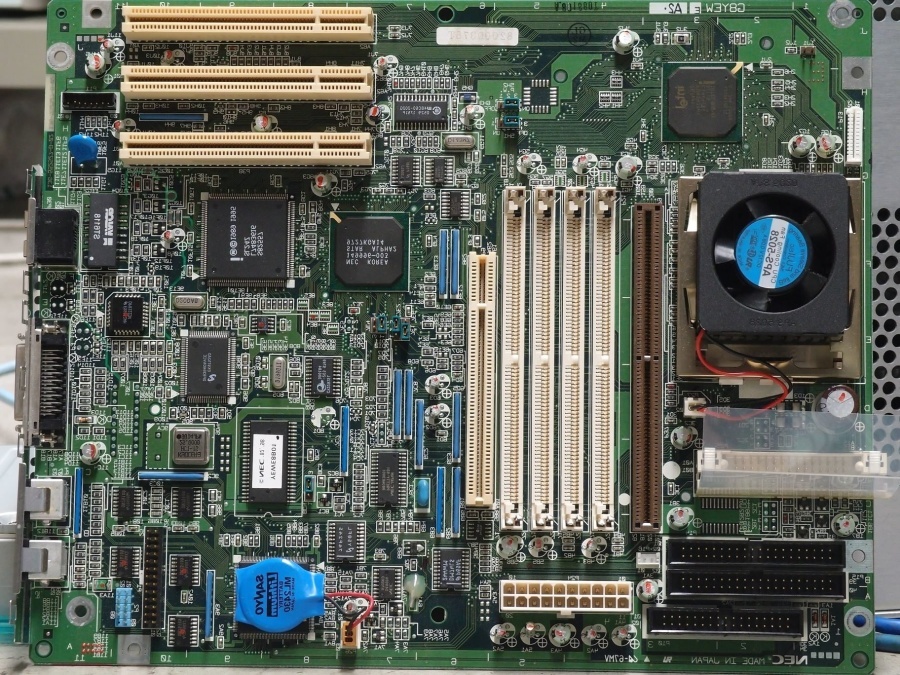Introduction
In today’s interconnected world, semiconductors are the unsung heroes that power our daily lives. From smartphones and laptops to cars and medical devices, semiconductors are the building blocks of modern technology. However, what would happen if we suddenly found ourselves in a world without semiconductors? This blog explores the potential consequences of such a scenario, painting a picture of a technological dystopia where our digital existence would be severely crippled.
Semiconductor- a magic material
Semiconductors are indeed remarkable materials that play a vital role in modern electronics. While the term “magic material” may be subjective, semiconductors have revolutionized technology and enabled numerous advancements in various fields. Semiconductors are a class of materials that have electrical conductivity between that of a conductor and an insulator. They are typically crystalline solids, with silicon (Si) being the most widely used semiconductor material. Other common semiconductor materials include germanium (Ge) and gallium arsenide (GaAs). What makes semiconductors special is their ability to control the flow of electric current. This control is achieved through a process called doping, where impurities are intentionally introduced into the semiconductor crystal to alter its electrical properties. Doping can create regions with an excess of electrons (n-type) or a deficiency of electrons, known as “holes” (p-type).
The interaction between the n-type and p-type regions forms a junction called a diode, which allows current to flow in only one direction. This property is crucial for building electronic devices such as diodes, transistors, and integrated circuits (ICs). Transistors, in particular, are the building blocks of modern electronics and have enabled the development of computers, smartphones, and countless other devices. The ability of semiconductors to exhibit different electrical behaviors under different conditions has paved the way for various applications. For example, when a voltage is applied to a semiconductor, it can emit light, leading to the invention of light-emitting diodes (LEDs). Semiconductors also form the basis of solar cells, converting sunlight into electricity.
Semiconductors are not magic in the literal sense, but they are undoubtedly remarkable materials with transformative properties. Their unique electrical characteristics and the ability to control and manipulate them have revolutionized the world of electronics, making them an essential component of modern technology.
The Foundation of Modern Technology
To understand the impact of a world without semiconductors, we must first grasp their significance. Semiconductors are materials with electrical conductivity between that of a conductor and an insulator. They are primarily made of silicon, forming the basis of integrated circuits and transistors. These tiny devices act as switches and amplifiers, enabling the control and manipulation of electric signals. Without semiconductors, the digital revolution would have never taken place, leaving us confined to a world of mechanical and analog systems.
Communication Breakdown
One of the most immediate and profound effects of a world without semiconductors would be the collapse of global communication networks. The internet, which has become an integral part of our lives, would cease to exist in its current form. Social media, online banking, and e-commerce would become relics of the past, plunging the world into an era reminiscent of the pre-digital age. Instantaneous communication across continents would become a distant memory, as we would have to rely on slower and more cumbersome methods such as postal mail and landline telephones.
Technological Regression
Semiconductors are present in almost every device we rely on, including smartphones, tablets, and computers. In a world without these vital components, our gadgets would become obsolete overnight. Without the ability to manufacture and repair semiconductors, the progression of technology would grind to a halt. Fields such as artificial intelligence, autonomous vehicles, and robotics would be severely limited, curtailing the potential for innovation and progress. Medical advancements that rely on sophisticated equipment, such as MRI scanners and genetic sequencers, would become inaccessible, jeopardizing the quality of healthcare.
Economic and Societal Implications
The absence of semiconductors would have far-reaching economic consequences. Industries that heavily rely on technology, such as the automotive and aerospace sectors, would suffer significant setbacks, leading to widespread unemployment and financial instability. Moreover, without the semiconductor industry’s contribution to global GDP, governments would struggle to maintain their economies, resulting in a decline in living standards.
Society would undergo a dramatic transformation as the conveniences we have grown accustomed to vanish. The way we work, learn, and entertain ourselves would undergo a fundamental shift. In the absence of digital platforms, educational institutions would resort to traditional teaching methods, limiting access to knowledge and impeding intellectual growth. Additionally, entertainment would be severely limited, with no streaming services, video games, or digital media available.
Conclusion
The world without semiconductors would be a bleak and regressive place. The absence of these crucial components would result in a breakdown of global communication networks, a regression of technology, and significant economic and societal implications. It is imperative to recognize the importance of semiconductors and invest in their research and development to ensure a sustainable and technologically advanced future. Only by appreciating their significance can we mitigate the potential risks associated with a world devoid of these remarkable components.

